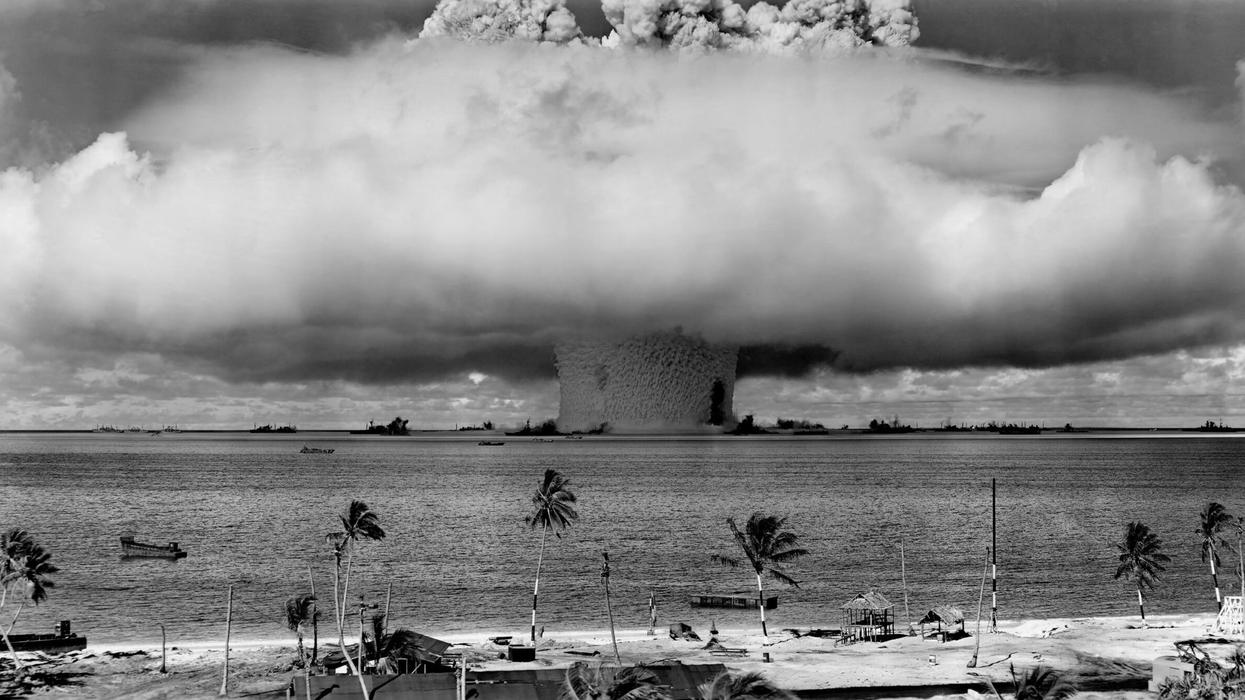The United States has an outsized obsession with Iran, but our political leaders and policymakers often have a distorted view of the Iranian government’s goals and capabilities.
That view leads them to embrace unnecessary and harmful policies that damage both American interests and the well-being of the Iranian people. Specifically, it is the conventional hawkish view of Iran that sees them as driven primarily by ideology and the desire to export their revolution abroad, and because of this, many U.S. policymakers refer unironically to Iranian “expansionism” and to cast everything that the Iranian government does as aggressive behavior.
This colors the way that the U.S. interprets the Iranian government’s actions, which inevitably makes Washington’s Iran policy more confrontational than is warranted. A more accurate assessment of why the Iranian government behaves as it does could lead U.S. policymakers to devise a different and less hostile policy than our government has had for the last 40 years.
That is why Gawdat Bahgat and Anoushiravan Ehteshami’s new study, Defending Iran: From Revolutionary Guards to Ballistic Missiles, is such an important contribution to our understanding of Iranian security policies. Through their extensive research into Iranian military capabilities and defense doctrine, Bahgat and Ehteshami explain how and why the post-revolutionary government developed the policies that it still pursues now. They detail how the Iranian government learned from the experience of isolation during the war with Iraq and began building up its own indigenous military-industrial complex, and they stress the importance of the experience of the war in shaping their leaders’ thinking about the need for an effective defense against foreign attack.
The U.S. looms large in this thinking as the main threat to be deterred, and to that end Iran has invested heavily in building up its missile arsenal to make sure that they do not suffer the same vulnerability to attack that they endured in the 1980s. Because Iran cannot match the conventional strength of its adversaries, it has adopted an asymmetric warfare doctrine to exploit the weaknesses of other states with the aim of making Iran secure against external threats.
As Bahgat and Ehteshami stress several times throughout the book, “The Islamic Republic’s military doctrine is essentially a defensive one.” Therefore, one of the main goals of the asymmetric doctrine is “to convince those adversaries that they would pay a high price if they attacked Iran.” U.S. policymakers would do well to take that seriously and recognize that launching an attack on Iran would almost certainly trigger major retaliation. Unlike other weaker states that the U.S. has attacked in the past, the Iranian government would have the ability to fight back and inflict real losses.
Defending Iran is a good complement to the existing scholarship on Iran’s security policies, especially Ariane Tabatabai’s study of Iran’s national security strategy, No Conquest, No Defeat. Their analysis strengthens Tabatabai’s observation that “the country is largely similar to most other states: its historical memory shapes its security thinking, which in turn drives its policies — making it neither a purely rational actor nor uniquely ideological.” Bahgat and Ehteshami reach a similar conclusion: “The Islamic Republic of Iran, like any other country in the world, formulates its politics based on ideological orientation and perceived national interests.” Contra Mike Pompeo, Iran already is a normal country, and it needs to be understood as such.
The core of Iran’s defensive capabilities is their ballistic missile program. While Iran hawks insist on portraying the program as being linked to the nuclear issue, Bahgat and Ehteshami make a strong case that Iran has been focused on developing its missile forces as a conventional deterrent and not as a means for delivering nuclear weapons that Iran obviously doesn’t have and isn’t even trying to build. The Iranian decision taken a few years ago to limit their missiles’ range and to work instead on improving accuracy confirms that interpretation. They conclude that “the available evidence does not support the claims that Iran has developed an ICBM capability.” Since Iran has no nuclear weapons program, they would not have much need for that capability.
Iran relies so heavily on missiles for defense because of the weakness of its aging air force, and because they remember being at a severe disadvantage early in the war with Iraq when they did not have them. As the authors explain, “This bitter experience has left its mark on Iranian strategists: They are determined to address their vulnerability and deter attacks.”
Further, because sanctions limit their available resources Iran has turned to manufacturing their own missiles at relatively low cost. “Within this context, missiles are seen as a cost-effective way of matching the air power of the United States and other regional adversaries.” Their government considers its missile program to be non-negotiable because it is so important to their defense strategy, and it is extremely unlikely that this view is going to change in the foreseeable future. If U.S. policymakers had a better grasp of how important the ballistic missile program is to the Iranian government’s defensive capabilities, they would realize why demands to restrict it are bound to be non-starters in Tehran.
The book focuses on each of Iran’s military capabilities in separate chapters, including Iran’s development of cyber capabilities, drones, and their use of regional proxies as part of their defense planning. Their discussion of Iran’s use of proxies is particularly important because these are the relationships that make up a major part of Iran’s ability to project power and influence in the region. Like missiles, “proxies have emerged to occupy a central place in the republic’s security doctrine and have come to serve its interests across the region,” and for that reason Iran is unlikely to abandon these relationships even when they are placed under severe pressure to do so.
While advocates of “maximum pressure” sanctions like to think that they are weakening Iranian support for these groups by starving the government of revenue, the cost for supporting these groups is quite low and does not put a heavy strain on Iran’s resources. Given the importance of these groups to Iran’s larger strategy, the Iranian government is likely to find the resources needed to maintain their relationships with them no matter how severe sanctions get. The fact that Iran’s support for proxies and allies in the region continued and even intensified during the years of heavy sanctions before the signing of the nuclear deal supports that conclusion.
Defending Iran is an excellent study of Iran’s military capabilities and defense strategy, and it should be required reading for anyone working on or debating Iran policy. It helps to make sense of how the Iranian government sees things, what threats it perceives, and how it seeks to deter those threats. If one of the important elements of good statecraft is to be able to understand how leaders in other governments look at the world, U.S. policymakers will benefit greatly from absorbing the lessons from this book.
















